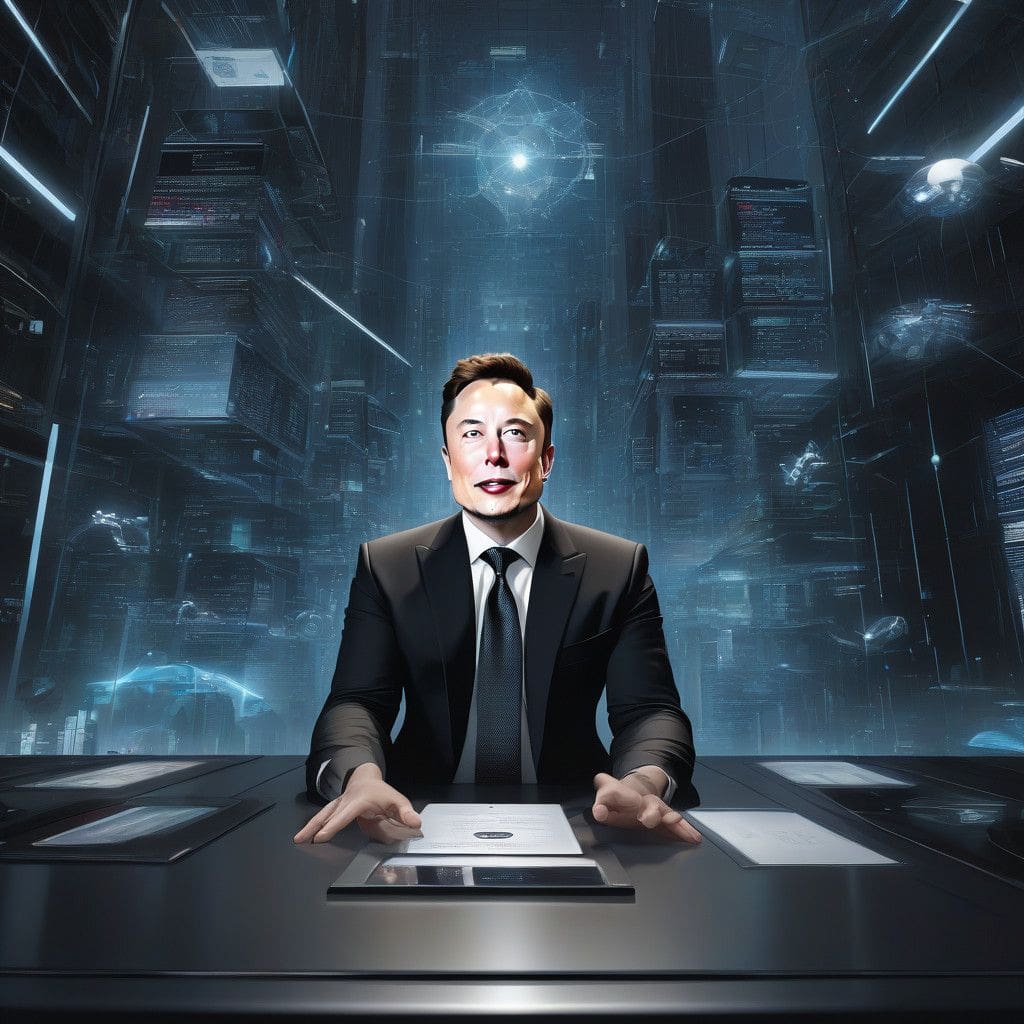Tesla and SpaceX CEO Elon Musk has reignited his legal battle against OpenAI, the artificial intelligence institution he co-founded in 2015. This renewed lawsuit, filed in a California federal court, prompts critical questions about the organization’s pivot from a non-profit foundation to a profit-driven entity, raising ethical and regulatory concerns.
Musk alleges that OpenAI has strayed from its original mission, primarily focused on safe and transparent AI development, as it has increasingly aligned itself with Microsoft, a major investor. The amended complaint identifies other notable defendants, including prominent venture capitalist Reid Hoffman and Dee Templeton, both of whom allegedly facilitated this shift in strategic direction that Musk claims is detrimental to competition and innovation.
The crux of Musk’s argument revolves around the notion that OpenAI and Microsoft have formed what he terms a “de facto merger,” granting OpenAI an unfair competitive edge—one that he argues undermines the foundational objectives of the organization and harms companies like his own, xAI. Musk’s legal representation asserts that this partnership contravenes antitrust regulations, placing significant emphasis on the intertwined relationships between OpenAI’s board members and their connections to Microsoft.
The lawsuit details various alleged breaches of antitrust laws, particularly focusing on the dual roles of Hoffman, who sits on both boards. This duality is depicted as a potential conduit for sensitive information that could hurt other players in the AI landscape by providing OpenAI with insights exclusive to its operations.
Moreover, the controversy is compounded by the inclusion of Shivon Zilis, a Neuralink executive and Musk ally, as a co-plaintiff. Zilis reportedly raised similar concerns about the internal governance and direction of OpenAI during her tenure as a board member, asserting that her warnings regarding the potential shift to a profit-based model were ignored. This adds a personal element to the legal dispute, illustrating the internal conflict witnessed within the organization Musk once helped build.
Musk’s legal team does not shy away from spotlighting specific instances where OpenAI’s operational changes have raised eyebrows. For instance, they reference a proposal from 2018 that would have enabled the organization to delve into cryptocurrency—a move that Musk opposed due to its potential to damage OpenAI’s reputation and original intention.
OpenAI has categorically dismissed Musk’s claims as baseless and characterizes the lawsuit as a publicity stunt aimed at advancing personal interests against rivals. Their stance raises broader questions about the accountability of organizations that evolve from non-profit frameworks to commercially driven entities, particularly in a sector as sensitive as artificial intelligence.
This unfolding situation highlights several key issues in the technology sector today. First is the debate around the ethical responsibilities of organizations transitioning from altruistic principles to profit-making operations. As seen with OpenAI, the concern lies in whether such a transition compromises transparency, accountability, and the safety that originally drove AI development forward.
Second, the implications of this lawsuit extend beyond OpenAI and Musk’s enterprises. They invite scrutiny of the structures around major tech partnerships and how they may stifle competition. Musk’s allegations point to a larger conversation surrounding regulatory bodies’ role in overseeing such affiliations to ensure fair practices across the industry.
In conclusion, Musk’s renewed legal action against OpenAI opens doors for extensive discourse on the ethics of artificial intelligence development, competition, and the accountability of tech giants. Whether his accusations will lead to significant changes in how organizations operate or serve as a mere distraction from ongoing innovations remains to be seen. The tech world will undoubtedly be watching closely as this legal drama unfolds, potentially reshaping perceptions of how powerful entities engage in the complex interplay of technology and ethics.












